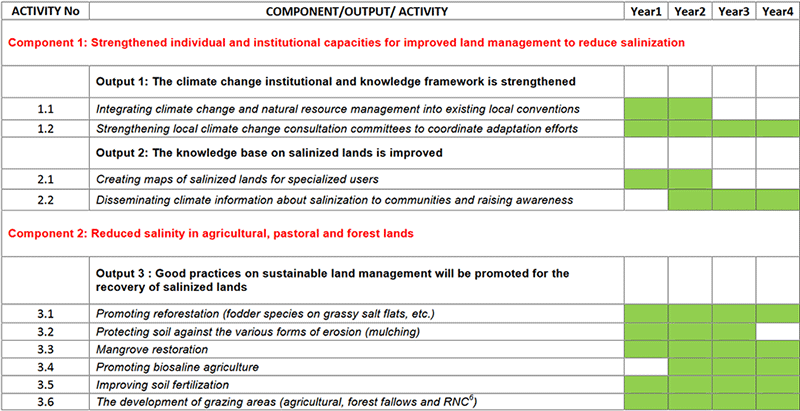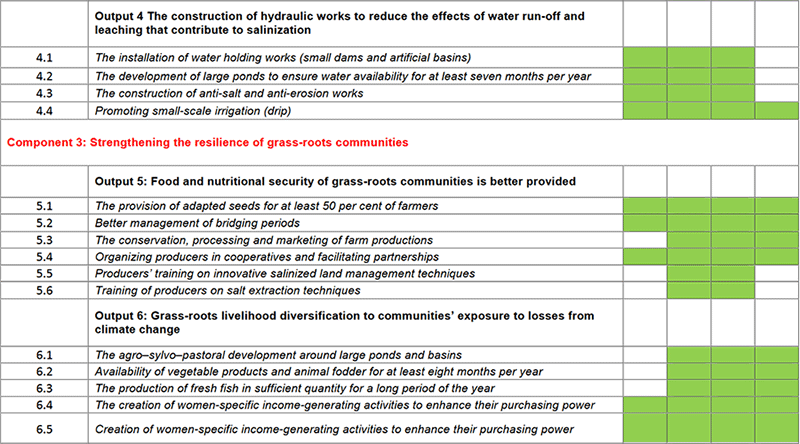Increasing the Resilience of Ecosystems and Communities through Restoration of Productive Bases of Salinized Lands: FP003
Project Outline
The project seeks to reduce impacts of climate change, specifically from land salinization in delta areas and estuaries. It envisions to: (a) improve knowledge on the phenomenon of land salinization; (b) promote the adoption and dissemination of appropriate technologies; and (c) encourage the broad participation of beneficiaries (populations and local authorities). Institutional and community support for desalinization measures are essential for ensuring that enabling environments are in place to support the long-term maintenance and operation of desalinization measures.
| Country(ies) | Senegal |
|---|---|
| National Designated Authority (NDA) | Madeleine Diouf |
| Accredited Entity (AE) | Centre de Suivi Ecologique: CSE (Direct/National) |
| Executing Entity (EE) | International Union for Conservation of Nature: IUCN; Institut National de Pedologie / National Soil Science Institute: INP; Reseau Africain pour le Developpement Integre: RADI (Public) |
| Date of Final FP Submission | September 18, 2015 |
| Estimated Project Duration | 2016-2020 |
| Target Sector | Soil Management (Desalinization)/Agriculture |
| GCF Financing | 7.614260 million USD (Grant) Micro |
| Co-financing | INP: 0.546 million USD (Grant) |
Project Description
< Major Project Components>
- Strengthening capacities for improved land management to reduce salinization (mainstreaming climate change in development plan, development of coordination mechanisms, and building a sound knowledge base).
- Reducing salinity in agricultural, pastoral, and forest lands (fodder species on grassy salt flats, mangrove restoration, bio-saline agriculture, mineral/organic amendments, run-off retention works in the form of small dams and artificial basins, anti-erosion works such as frame bunds, and small-scale drip irrigation).
- Strengthening resilience of grassroots communities (provision of adapted seeds to farmers, building warehouses for bridging periods, marketing farm produce, agro-silvo-pastoral development of large ponds and basins, etc.).


Ref: FP003 Increasing the Resilience of Ecosystems and Communities through Restoration of Productive Bases of Salinized Lands
Potential Indicators of Key Impacts
Expected total number of direct and indirect beneficiaries, disaggregated by gender (reduced vulnerability or increased resilience):
- Direct beneficiaries: 20,789 persons (50% of total beneficiaries will be women)
- Indirect beneficiaries: 109,035 persons
20% of the population of the two project districts (Fatick and Foundiougne) - Other relevant indicators:
- 51,800 ha of productive lands reclaimed by reducing and preventing salinization and rehabilitating land condition.
- Food and nutritional security of 10,000 persons will be better provided for, and 1,000 households will have greater food security during bridging periods between seasons.

